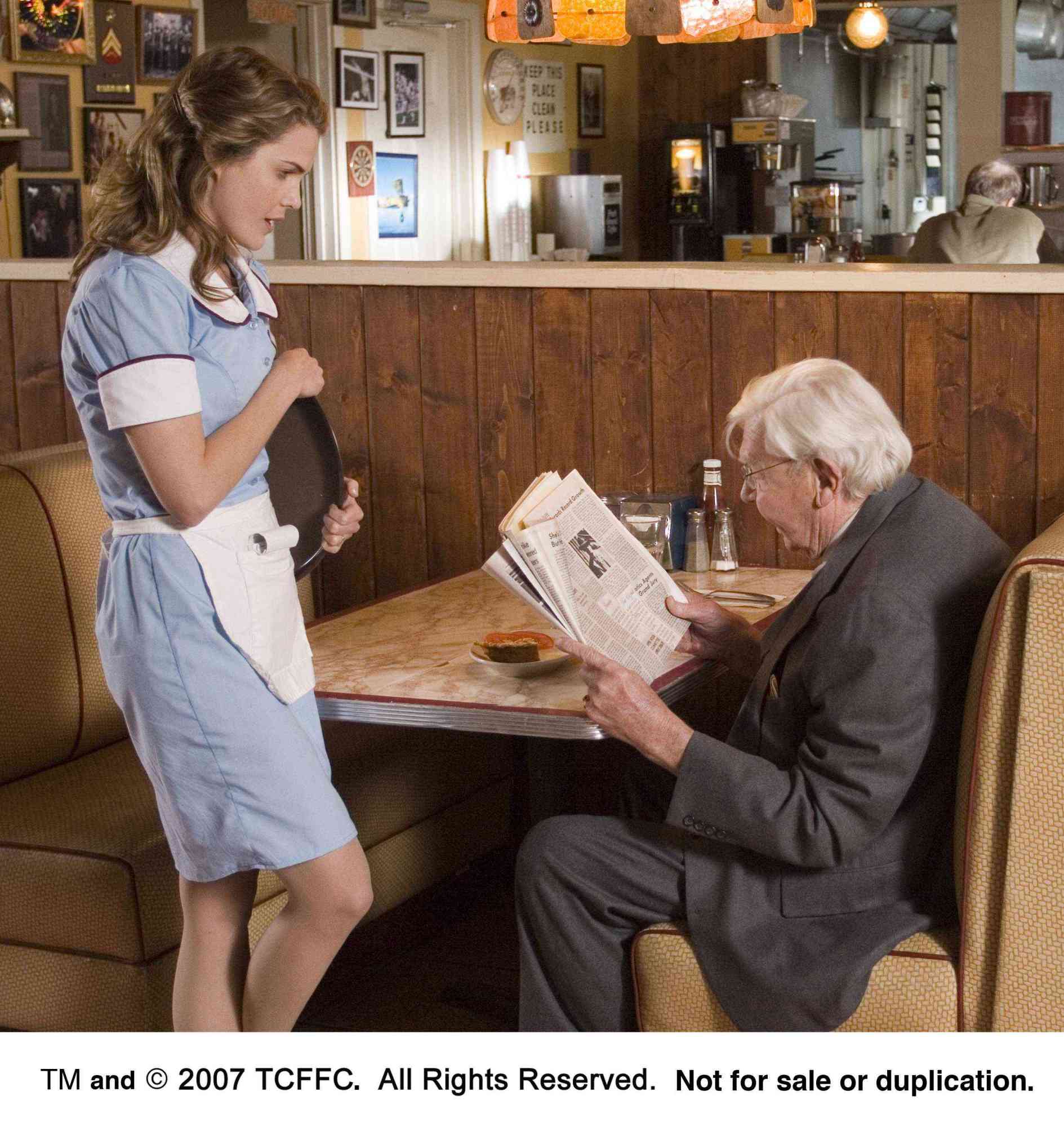On Nov. 13, 2009, a Belgian physician notified authorities about an apparent cluster of Shigella sonnei; ultimately, 52 cases were identified over two months, and most were linked to a canteen in a public institution building. Best guess is that a food handler who travelled to Morocco shortly before detection of the first laboratory-confirmed case, picked up shigella, and then transmitted it through food.
The details can be found in the current issue of Epidemiology and Infection, where researchers report on a matched case-control study to test an association between shigellosis and canteen-food consumption.
The three food handlers working permanently in the canteen responded to the questionnaire. Food handler A travelled to Turkey from 23 September to
4 October 2009. She started working on 7 October. She prepared sandwiches,  washed dishes and served food. She fell ill on 20 October, and had been exposed to canteen food during the 4 days prior to disease onset. Food handler B travelled to Morocco from 23 September to 1 October. This person started working on 4 October and was involved in vegetable washing, preparation of hot meals, sandwiches, cold dishes involving vegetables and cleaning the canteen. He did not declare having fallen sick. Food handler C was also involved in all activities except in hot meal preparation. He had not travelled, been absent or fallen sick.
washed dishes and served food. She fell ill on 20 October, and had been exposed to canteen food during the 4 days prior to disease onset. Food handler B travelled to Morocco from 23 September to 1 October. This person started working on 4 October and was involved in vegetable washing, preparation of hot meals, sandwiches, cold dishes involving vegetables and cleaning the canteen. He did not declare having fallen sick. Food handler C was also involved in all activities except in hot meal preparation. He had not travelled, been absent or fallen sick.
Of the 52 shigella cases found in 708 employees of a public institution in Flemish Brabant province, Belgium, between September and November 2009, seven cases were confirmed as S. sonnei. There was a common PFGE profile which resembled those from archived specimens from Morocco. Cases of
shigellosis were associated with canteen-food consumption.
Investigators worked with three hypotheses: (i) waterborne transmission through a contaminated water dispenser, (ii) person-to-person transmission or via surfaces (toilets), or (iii) foodborne transmission (through previously contaminated food or during the preparation process by a contaminated food handler).
Foodborne transmission through canteen food is supported by the results of the employee survey and by the matched case-control study. This led us to think that a food handler might have been the source of the outbreak. Food handler B returned from Morocco shortly before the appearance of the first confirmed cases. He did not report any symptoms and worked continuously since his return.
Foodborne transmission might have happened had he been an asymptomatic case. Healthy carriers can shed 102 Shigella c.f.u./g of feces during 1 month.
Thus, food handler B could have unintentionally acted as an intermittent source  of food contamination during the period of faecal shedding. Conversely, food handler A, who had travelled to Turkey, could not be the source of the outbreak, since her onset of disease happened after the onset of symptoms of some confirmed cases.
of food contamination during the period of faecal shedding. Conversely, food handler A, who had travelled to Turkey, could not be the source of the outbreak, since her onset of disease happened after the onset of symptoms of some confirmed cases.
The researchers recommend:
• washing hands with soap and water before eating and after defecation for employees and food handlers;
• preventing sick food handlers from working until full recovery or until negative fecal culture in the case of laboratory confirmation;
• maintaining surveillance of further possible cases of shigellosis through the institution’s prevention service; and,
• collecting information on the workplace when interviewing notifiable cases in order to detect infectious disease clusters early.
Shigellosis outbreak linked to canteen-food consumption in a public institution: a matched case-control study
01.feb.11
Epidemiology and Infection
I. Gutiérrez Garitano, M. Naranjo, A. Forier, R. Hendriks, K. De Schrijver, S. Bertrand, K. Dierick, E. Robesyn, and S. Quoilin
http://journals.cambridge.org/action/displayAbstract?fromPage=online&aid=8024291
Abstract
On 13 November 2009, the authorities of Flemish Brabant, Belgium, received an alert concerning a potential outbreak of Shigella sonnei at a public institution. A study was conducted to assess the extent, discover the source and to implement further measures. We performed a matched case-control study to test an association between shigellosis and canteen-food consumption. Water samples and food handlers’ faecal samples were tested. The reference laboratory characterized the retrospectively collected Shigella specimens. We found 52 cases distributed over space (25/35 departments) and time (2 months). We found a matched odds ratio of 3·84 (95% confidence interval 1·02–14·44) for canteen-food consumption. A food handler had travelled to Morocco shortly before detection of the first laboratory-confirmed case. Water samples and food handlers’ faecal samples tested negative for Shigella. Confirmed cases presented PFGE profiles, highly similar to archived isolates from Morocco. Foodborne transmission associated with the canteen was strongly suspected.
 public health and low-wage workers.
public health and low-wage workers.
(1).jpg) can spot a difference between the two. “We hope your immune system is ready because you’re about to take the sandwich test,” it reads.
can spot a difference between the two. “We hope your immune system is ready because you’re about to take the sandwich test,” it reads.
.jpg) if it will prevent additional people from barfing?)
if it will prevent additional people from barfing?) The outbreak seemed to be under control until Saturday when several people who attended a function the previous night became ill.
The outbreak seemed to be under control until Saturday when several people who attended a function the previous night became ill. – Si esta enfermo, y sus síntomas incluyen nausea, vomito o diarrea, no prepare alimentos.
– Si esta enfermo, y sus síntomas incluyen nausea, vomito o diarrea, no prepare alimentos.  washed dishes and served food. She fell ill on 20 October, and had been exposed to canteen food during the 4 days prior to disease onset. Food handler B travelled to Morocco from 23 September to 1 October. This person started working on 4 October and was involved in vegetable washing, preparation of hot meals, sandwiches, cold dishes involving vegetables and cleaning the canteen. He did not declare having fallen sick. Food handler C was also involved in all activities except in hot meal preparation. He had not travelled, been absent or fallen sick.
washed dishes and served food. She fell ill on 20 October, and had been exposed to canteen food during the 4 days prior to disease onset. Food handler B travelled to Morocco from 23 September to 1 October. This person started working on 4 October and was involved in vegetable washing, preparation of hot meals, sandwiches, cold dishes involving vegetables and cleaning the canteen. He did not declare having fallen sick. Food handler C was also involved in all activities except in hot meal preparation. He had not travelled, been absent or fallen sick..png) stomach flu at a corporate event catered by Druxy’s Tuesday, said Dr. Chris Mackie, one of the city’s associate medical officers of health.
stomach flu at a corporate event catered by Druxy’s Tuesday, said Dr. Chris Mackie, one of the city’s associate medical officers of health.
 who consumed food purchased at this restaurant between July 26 and August 6 may have been exposed to the hepatitis A virus. The risk of getting the infection is very low.
who consumed food purchased at this restaurant between July 26 and August 6 may have been exposed to the hepatitis A virus. The risk of getting the infection is very low. people.
people.

.jpg) Commencement Day.
Commencement Day.